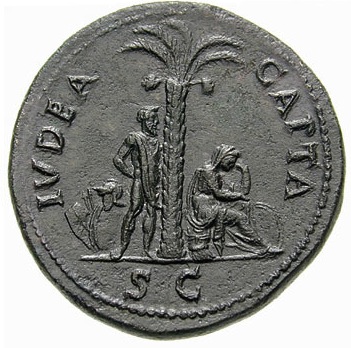|
Lippmann Moses Büschenthal
Lippmann Moses Büschenthal (12 May 1782 – 27 December 1818) was a Franco-German rabbi, poet and dramatist of the Haskalah movement. He was born in the Alsatian town of Bischheim, near Strasbourg, on 12 May 1782. In 1799, he married Debora Auerbach, granddaughter of Rabbi David Sinzheim, with whom he had four children (they would later divorce in 1813). After a short stay in Paris (1807), he left Alsace for Germany, settling first in Neuwied and then Elberfeld, where he worked as a newspaper editor. He then lived in Vienna and Breslau, before finally settling in Berlin shortly before his death. Büschenthal published mainly poetry in Hebrew and German, and one dramatic work. He composed psalms in Hebrew for the Jewish community of Strasbourg in 1801 on the occasion of an attempt on Napoleon's life, and in 1803 on the occasion of the war against England. Many of his works were published in the journals ''Sulamith'', ''Jedidja'' and ''Rheinische Blätter''. A collection of sh ... [...More Info...] [...Related Items...] OR: [Wikipedia] [Google] [Baidu] |
Rabbi
A rabbi (; ) is a spiritual leader or religious teacher in Judaism. One becomes a rabbi by being ordained by another rabbi—known as ''semikha''—following a course of study of Jewish history and texts such as the Talmud. The basic form of the rabbi developed in the Pharisees, Pharisaic (167 BCE–73 CE) and Talmudic (70–640 CE) eras, when learned teachers assembled to codify Judaism's written and oral laws. The title "rabbi" was first used in the first century CE. In more recent centuries, the duties of a rabbi became increasingly influenced by the duties of the Clergy, Protestant Christian minister, hence the title "pulpit rabbis." Further, in 19th-century Germany and the United States, rabbinic activities such as sermons, pastoral counseling, and representing the community to the outside all increased in importance. Within the various Jewish denominations, there are different requirements for rabbinic ordination and differences in opinion regarding who is recognized as a ... [...More Info...] [...Related Items...] OR: [Wikipedia] [Google] [Baidu] |
An Die Freude
"Ode to Joy" ( ) is an ode written in the summer of 1785 by the German poet, playwright, and historian Friedrich Schiller. It was published the following year in the German magazine ''Thalia''. In 1808, a slightly revised version changed two lines of the first stanza and omitted the last stanza. "Ode to Joy" is best known for its use by Ludwig van Beethoven in the final (fourth) movement of his Ninth Symphony, completed in 1824. Beethoven's text is not based entirely on Schiller's poem, and it introduces a few new sections. Beethoven's melody, but not Schiller's text, was adopted as the "Anthem of Europe" by the Council of Europe in 1972 and later by the European Union. Rhodesia's national anthem from 1974 until 1979, "Rise, O Voices of Rhodesia", also used Beethoven's melody. The poem Schiller wrote the first version of the poem when he was staying in Gohlis, Leipzig. In 1785, from the beginning of May till mid-September, he stayed with his publisher, Georg Joachim Gös ... [...More Info...] [...Related Items...] OR: [Wikipedia] [Google] [Baidu] |
Jewish Dramatists And Playwrights
Jews (, , ), or the Jewish people, are an ethnoreligious group and nation, originating from the Israelites of ancient Israel and Judah. They also traditionally adhere to Judaism. Jewish ethnicity, religion, and community are highly interrelated, as Judaism is their ethnic religion, though it is not practiced by all ethnic Jews. Despite this, religious Jews regard converts to Judaism as members of the Jewish nation, pursuant to the long-standing conversion process. The Israelites emerged from the pre-existing Canaanite peoples to establish Israel and Judah in the Southern Levant during the Iron Age. John Day (2005), ''In Search of Pre-Exilic Israel'', Bloomsbury Publishing, pp. 47.5 8'In this sense, the emergence of ancient Israel is viewed not as the cause of the demise of Canaanite culture but as its upshot'. Originally, Jews referred to the inhabitants of the kingdom of JudahCf. Marcus Jastrow's ''Dictionary of the Targumim, Talmud Babli, Talmud Yerushalmi and Mid ... [...More Info...] [...Related Items...] OR: [Wikipedia] [Google] [Baidu] |
Jewish Comedy Writers
Jews (, , ), or the Jewish people, are an ethnoreligious group and nation, originating from the Israelites of History of ancient Israel and Judah, ancient Israel and Judah. They also traditionally adhere to Judaism. Jewish ethnicity, religion, and community are highly interrelated, as Judaism is their ethnic religion, though it is not practiced by all ethnic Jews. Despite this, religious Jews regard Gerim, converts to Judaism as members of the Jewish nation, pursuant to the Conversion to Judaism, long-standing conversion process. The Israelites emerged from the pre-existing Canaanite peoples to establish Kingdom of Israel (Samaria), Israel and Kingdom of Judah, Judah in the Southern Levant during the Iron Age.John Day (Old Testament scholar), John Day (2005), ''In Search of Pre-Exilic Israel'', Bloomsbury Publishing, pp. 47.5 [48] 'In this sense, the emergence of ancient Israel is viewed not as the cause of the demise of Canaanite culture but as its upshot'. Originally, J ... [...More Info...] [...Related Items...] OR: [Wikipedia] [Google] [Baidu] |


